

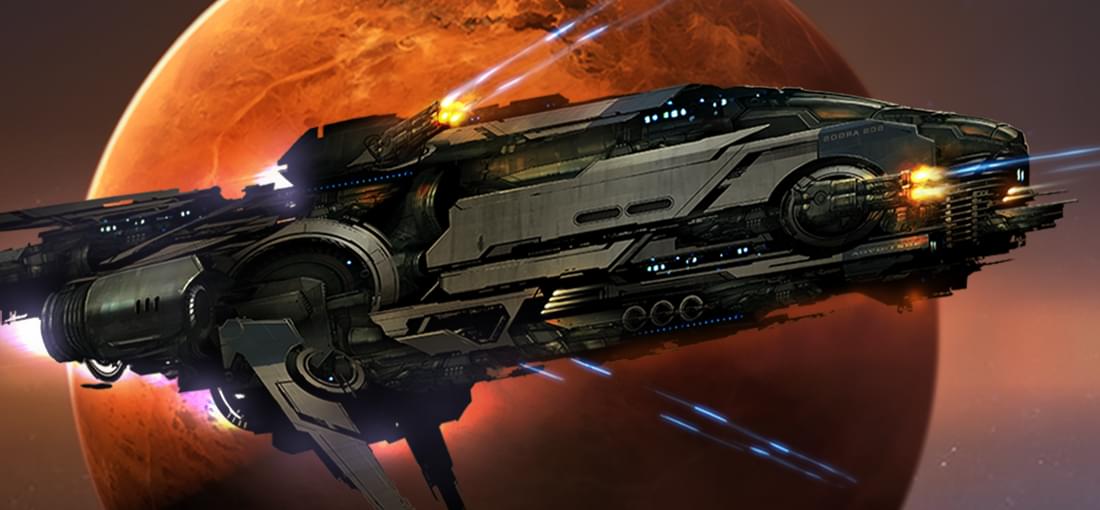
Starcom isn't necessarily a bad game, but maybe it wasn't the right game for me? You're steering a ship about and exploring planets and anomalies wherever you go. You encounter alien races and make friends or enemies of them. This is everything you could want out of a space game - on paper. The implementation of Starcom is skin deep. You go out and collect resources amidst all the trekking, then return to base to build a bigger ship and research tech, rinse and repeat. Combat is equally shallow and is often more of a chore than it is rewarding - especially with infinitely respawning bad guys. The exploration is the high point and main draw of the game. But many of the things you encounter, though sometimes interesting, are too often trivial, irrelevent, and don't lead to anything worthwhile. At some point, I stopped caring about the story and world, and only cared about finishing the game. But now I've reached a point where I have no idea of where to go or what to do - and I have no motivation to continue any further.
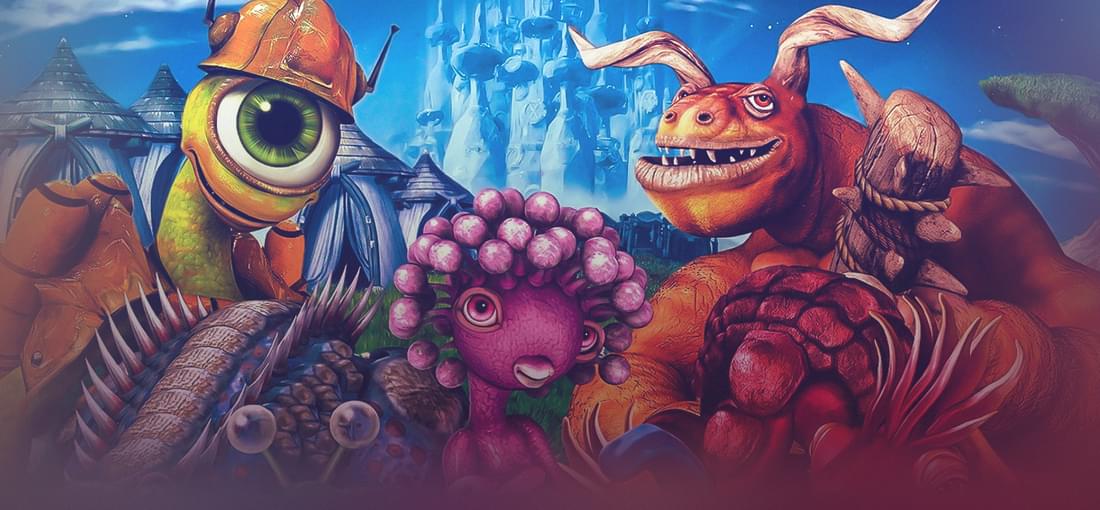
Spore is an evolution-coated monster-maker game. It's hard to point to one thing and say "that's where it all went wrong!" I remember seeing concept videos of Spore when it was less cartoonish, and it was awesome. We know EA pushed for unrealistic deadlines, which is what they do best. This resulted in a buggy and unfinished mess of a product, as such behavior always does. But Will Wright was still responsible for the cartoonish design and overly simple, shallow, and unengaging gameplay. But the biggest crime was the DRM. Not only did the DRM cause performance issues, but it limited the number of times you could install the game. Then it became a dead CD. This directly caused Spore to being one of the most pirated video games in history... Spore proved DRM doesn't work and the industry's response was "we need more DRM!" And that is why you should never buy Spore. It's not even that great of a game, and there's the principal which must be enforced.
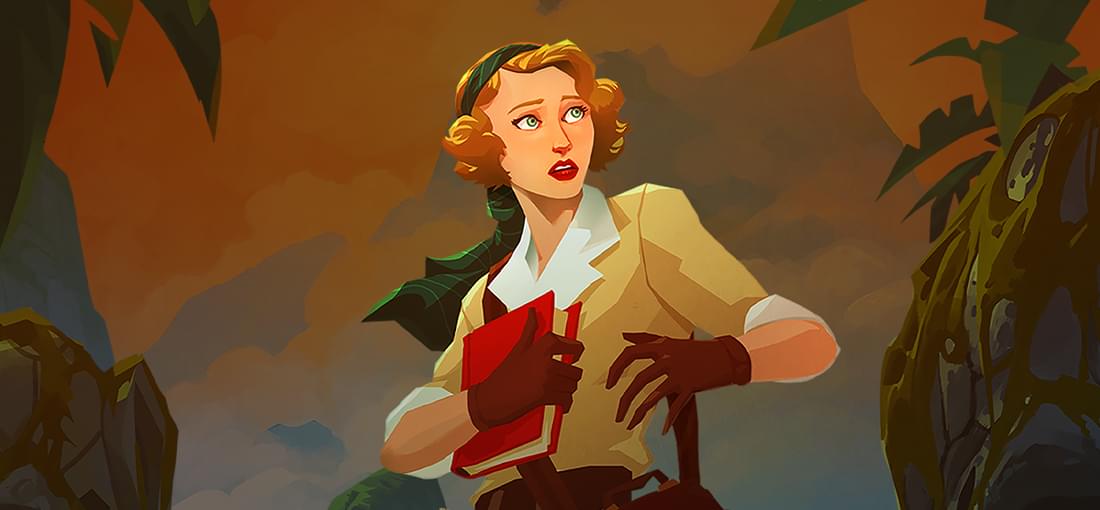
When I gauge whether I'm getting my money's worth out of any game, I expect 1 USD to equal 1 hour of gameplay. This game should not take you 20 hours to complete. I finished the game over the course of a few hours spread out over three days. Therefore, I find the full price of 20 USD to be very difficult to justify. However, the short length is a good thing. The game does not overstay its welcome. The core of the game is within both its story and the puzzles. The story is very good, but that's all I can say without spoilers. Chapter 1's puzzle is a joke, but I promise you gets better. They do not become exceptionally difficult, but are usually solid enough, clever, and well presented. I think my favorite part of the game is the wide variety of puzzles. The game doesn't get stale by presenting you the same kind of puzzle over and over again, like Portal 2 or The Talos Principle. The worst part of the game is your character's very slow movement. My finger was practically glued to the "shift" key to run, and that was still a good pace to enjoy the scenery. It's not great, but survivable and not a deal breaker. I hope my review helped you make a decision. Happy gaming.
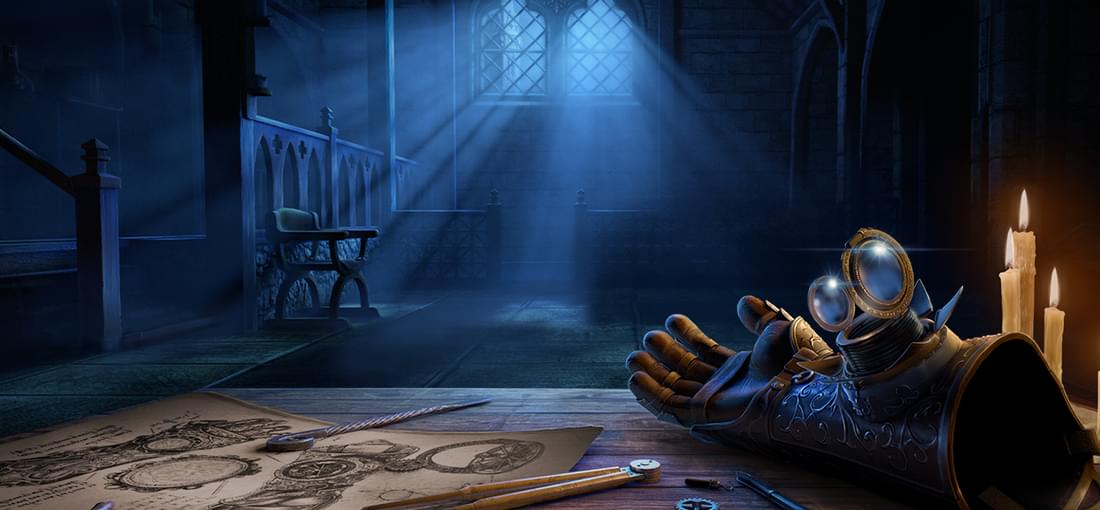
House of da Vinci can be best summarized as an entry level puzzle game for normies, and Leonardo da Vinci deserves so much more. Leonardo da Vinci is best known as a painter, but he was also interested in anatomy, astronomy, botany, engineering, and more - and this game does reflect some of those things. He was also known for his mirrored handwriting and using unusual symbols for notation – which has led to the popular belief he was including secret codes in his letters and paintings. Regardless if he was or was not writing in code, this game could have leaned into that mystique far more, and it should have. An incredibly wasted opportunity. Instead of a puzzle game full of ciphers and hidden messages, we got a game where 90% your time will be wasted poking around objects and the environment to find the next move. A pixel hunt, if you will. A good puzzle game gives you a ring of keys so you can figure out which one is the correct key. A bad puzzle game hides the key instead. Of the actual puzzles present, most of them are lightweight. Most involve finding a missing component to a weird contraption. Others are geometric in nature. But all of them are buried underneath all of the "clicking around" you'll be doing. The final puzzle is easily the best one, but even that one suffers from the "hidden keys" problem. So to that end, don't feel bad if you need the hint system. Just keep in mind it's also useless half of the time. For every hint that says, "you should look over there by the table" there is one that goes "I think this item goes somewhere."
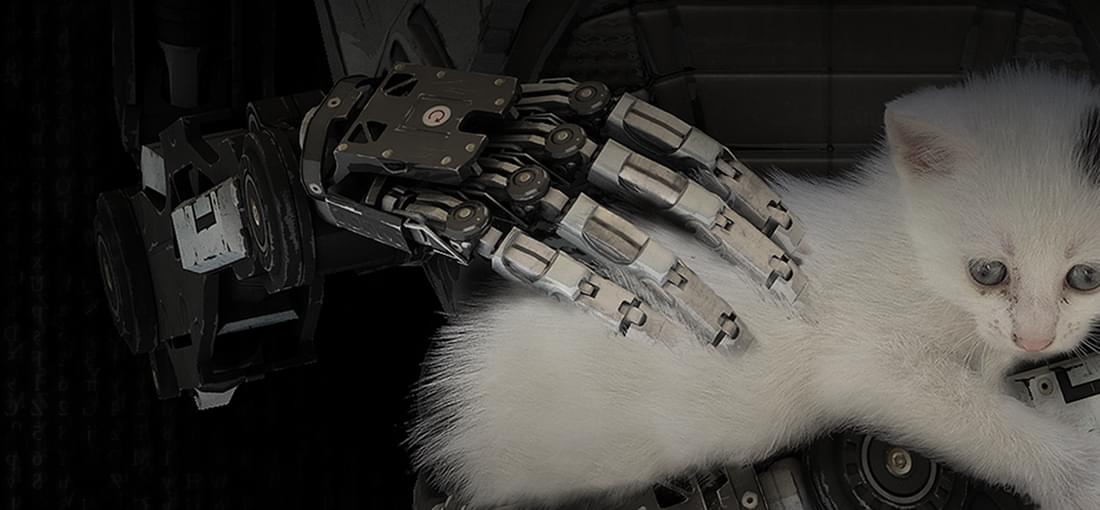
I just finished the game and got all 3 endings, so this review is fresh out of the oven. If you've played Portal, then you already know what the gameplay has to offer. Switches, lasers, hazards, giant floor buttons, emotional support cubes, and more. The only thing that's missing is the portal gun, which means there is A LOT of running around... And there are more than 100 of these puzzles. In short, the game overstays its welcome. The game starts of very strong, but quickly drops into a repetitive slog. I'd say 4/5 puzzles are super easy, but they can still be time-consuming which makes them feel more like a chore. I felt like I was only completing them for sake of progressing the game, not because they were engaging. Of the remaining 1/5 puzzles, it's a mixed bag of good puzzles, and obtuse, confusing, and frustrating puzzles. You will probably need to look up a guide for several of them. I actually got frustrated enough in the latter fourth of the game I stopped caring about trying to solve the puzzles myself and using the guide so I could finish the game and simply be done with it. And this is coming from a guy who completed the original Riven without a guide. I won't spoil the story, but I will say it was nice to see real philosophy at the center of the story instead of shallow and hyperbolic moral conundrums. The story is provided in a very slow drip of text and audio logs. The sense of mystery is interesting, until it isn't. I would say the slow drip harmed my sense of progress more than it encouraged me to push forward. Fortunately, it does pick up towards the end, but not enough to make me want to buy The Talos Principle 2. If you choose play The Talos Principle, I hope you enjoy it more than I did.
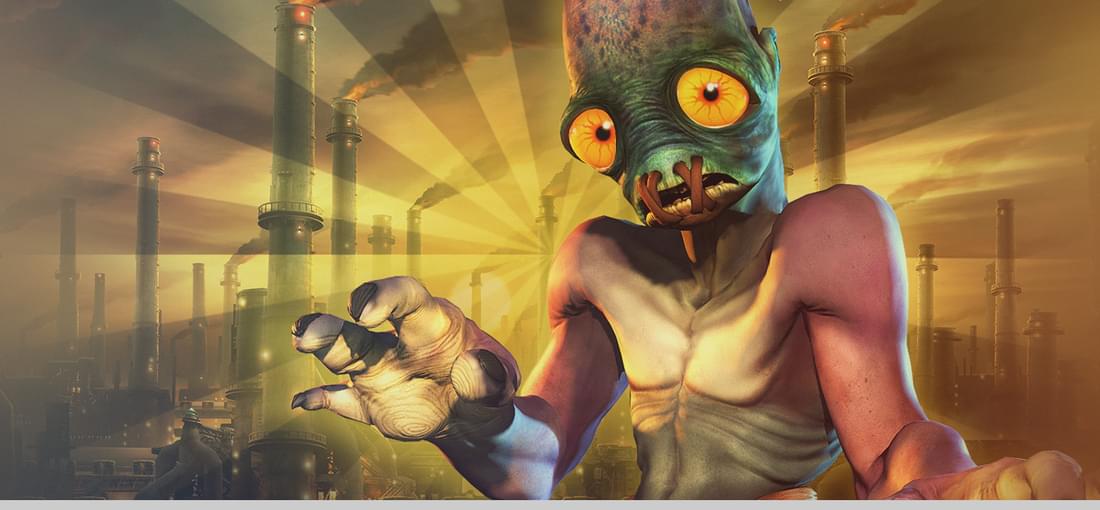
Oddworld is from the 90s, when games were made with tough love. You'll pull a lever and something bad will happen. Now you know to be more careful in the future! But even armed with such knowledge, you will die a lot. Fortunately you don't need quarters to keep playing! Use quicksave a lot, or you'll go crazy. You might still go crazy anyways because many secrets are very well hidden. Oddworld is colorful and strange place with creatures to match. The story is simple with a heavy-handed moral message against the exploitation of people and the environment, which is sadly more relavant than ever nearly 30 years after the original Oddworld. The evil Glukkons destroy and consume everything in sight for profit. Our hero, Abe, is a runaway slave, and you guide him through many perilous levels to free his fellow Mudokons and shut down Rupture Farms! But even when you find everything around you is grim and awful, you can still do something to leave the world a better place than how you found it. And doing the right thing doesn't have to be hard or monumental. Sometimes making a little fart joke to put a smile on someone's face is enough for one day. Happy gaming!
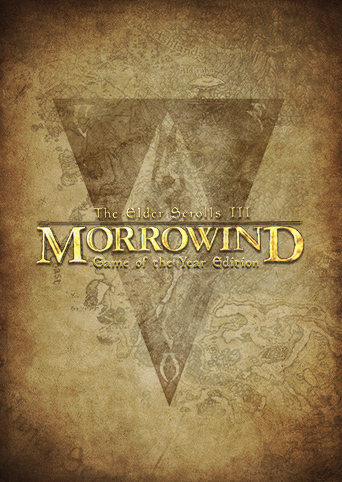
It's glitchy, a bit janky, walking around everywhere takes a long time, and you have to read everything - but that's how Morrowind rolls, and it will become your second life. It's not about running as fast as you can to get from point A to point B blasting away as many monsters as you can along the way. Take a walk, wander, smell the roses, enjoy the exotic flora and fauna. We don't need waypoints, we're just enjoying ourselves. But the world isn't empty. It won't take long to find a cave by the road. Explore it! Maybe you'll get incredibly lucky and find a powerful magic ring?
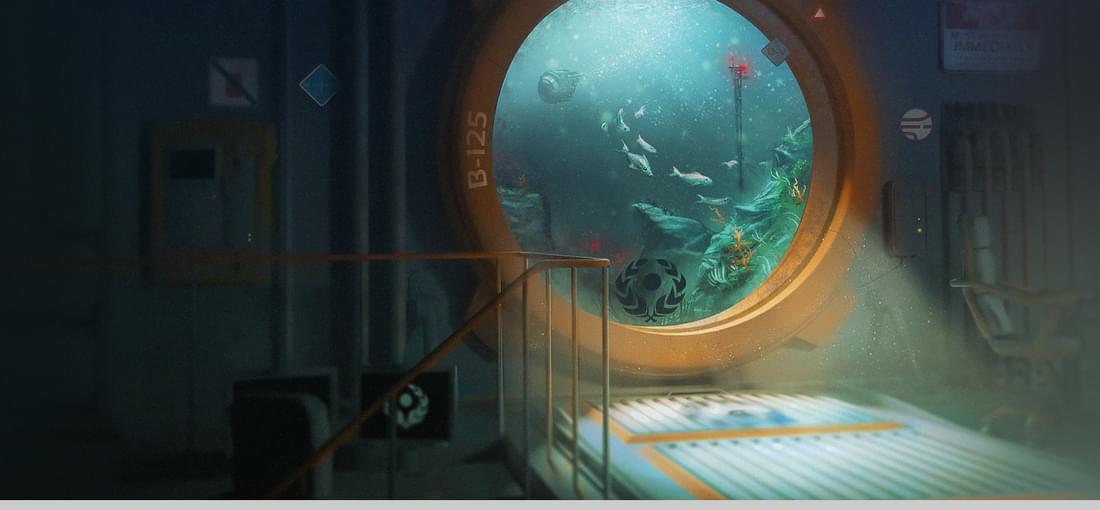
I cannot help but feel this game has been incredibly over-hyped over the years. It is not the worst game I have ever played, and it does have great atmosphere, but it's outshined by other games that did it better, notably Alien: Isolation, which came out one year before Soma did. Soma's gameplay amounts to being a walking simulator. It's incredibly linear, and lacks urgency. You will encounter trivial puzzles, like "find the code," or "find the sweet spot." They're not particularly engaging. You do have to sneak around monsters who shamble around a given area, and they are the only dangers you will face. I played Soma on Normal Mode because I felt Safe Mode would be cheating. But you can easily outrun the monsters, so you might as well play the game in Safe Mode because it would be the same. Doing so comes with the added benefit of being able to progress when one of the monsters is camping at the entrance of an area you're supposed to go to, which makes the game incredibly unenjoyable to play. The main character is also not particularly likable. It seems like the developers wanted him to as ignorant as the player, which is fine. But it seems like they couldn't make up their mind if they also wanted him to be either a jerk or whiny. One moment he's going "yeah, whatever," then the next, "but there are monsters outside." Good grief. The story can be summarized as a analyizing Nozick's Experience Machine thought experiment from another perspective. If you know what I am talking about, then you already understand. Many people seem to find this concept mind-blowing. It may be the fact I am far more well-read in philosophy than most people, but whatever the reason, Soma's premise does not offer me anything I have not already familiar with, and I think other franchises have done a better job of it. But for as much as I've trash-talked Soma, it's worth playing if it's on sale. Form your own opinion. That's my hot take on Soma, thanks for reading.
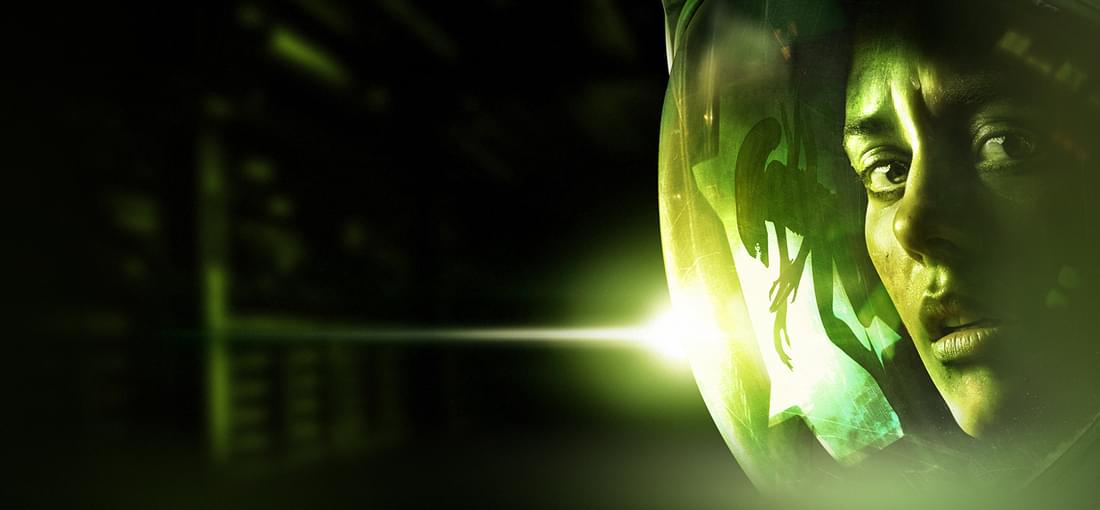
I remember playing Alien: Isolation on Xbox back when it was first released. I was in awe, The game starts great. The atmosphere is top tier. Every little sound you hear makes you think, "oh crap, is it the alien?" Then I was left utterly disappointed when the dumb alien AI walked in circles around the area for 30 minutes while I watched from a locker. I got frustrated and bored, then turned it off sold the CD back to the store. I never bothered with Alien: Isolation again until recently - when I learned of one mod that fixed the entire game. "It's better with mods" means the game is bad, and players have to fix it. Why do people pay for bad games we have to fix? What a world we live in. The alien operates on two AI's - the local AI, which controls the alien's senses of hearing and sight, and the tether AI, which acts as a soft GPS locator, telling the alien where the player is at. If it moves too far away, it automatically gets rebounded towards the player. This is meant to assure the player will run into the alien during general gameplay, and not exclusively at scripted events. The problem with this design is it directly contradicts the first rule of horror: in order to successfully instill terror in your audience, you need to imply the object of fear, not engage it. The idea of the monster is always going to be more terrifying than the actual thing. When you over-expose the monster, it quickly becomes "oh, just another creature," and ceases to be terrifying. In this case, it became a chore to deal with the alien. If you want to play this game "the right way," use a mod that cuts the tether on the alien, or at least extends its leash a great deal. It becomes entirely possible you will never encounter the alien at all beyond scripted events. And you know what? That's actually a good thing. You'll make better progress in an otherwise absurdly long game, and it becomes far more terrifying.